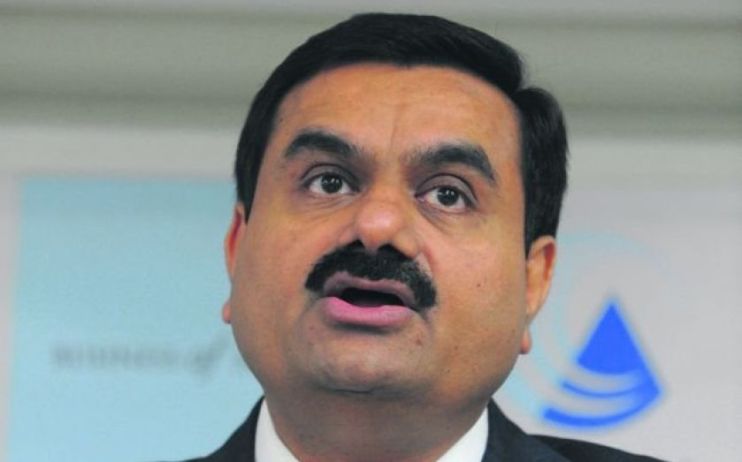Adani Group faces fresh allegations of share price manipulation

Adani Group has been accused of using “opaque” funds to avoid rules designed to prevent share price manipulation, in a fresh wave of allegations against the Indian conglomerate.
A global network of investigative journalists has argued the scandal-stricken company invested millions of dollars in publicly traded stocks of its own companies through offshore structures.
Documents cited in the extensive report from The Organised Crime and Corruption Reporting Project’s (OCCRP) report indicate an undisclosed offshore operation in Mauritius – seemingly controlled by Adani associates – which was allegedly used to support the share prices of its group of companies from 2013 to 2018.
It also names two individual investors who allegedly bought and sold the stocks on the group’s behalf who have “close ties to the Adani family” and have been directors and shareholders in companies associated with the group.
OCCRP says the two investors “spent years trading hundreds of millions of dollars’ worth of Adani Group stock.”
The report confirmed there was no evidence the funds they used for their investments were from the Adani family.
However, reporting and documents reviewed by the group’s journalists showed there was evidence that suggested their trading in Adani stock “was coordinated with the family.”
“The question of whether this arrangement is a violation of the law rests on whether Ahli and Chang should be considered to be acting on behalf of Adani ‘promoters’, a term used in India to refer to the majority owners of a business,” OCCRP said.
Shares of Adani Enterprises, the group’s flagship company, were trading down 2.82 per cent on the benchmark BSE index earlier this morning.
The report comes after $90bn was wiped off the company’s value in January earlier year, when US short seller Hindenburg Research accused the Indian conglomerate of fraud and stock market manipulation.
Hindenburg had alleged that the group was using overseas entities and shell companies to invest money into its own stocks – driving up share prices – which Adani vehemently denies.
The Adani Group is a vast conglomerate, operating across a wide range of sectors, including commodities trading, airports, utilities, ports and renewable energy, in India and other countries.
More than 60 percent of the Adani Group’s revenue is derived from coal-related businesses, with annual revenues of $33bn across the business.
It is led by billionaire Gautam Adani, one of the world’s richest men, who is considered a close friend of Indian Prime Minister Narendra Modi.
OCCRP also raised concerns over the conduct of the Securities and Exchange Board of India (SEBI), which has been investigating Adani since Hindenburg’s allegations in January.
Documents unearthed by the OCCRP suggest SEBI was made aware of stock market activity using Adani offshore funds as far back as early 2014, but that interest seemed to lapse following Modi’s election success.
The regulator has already been accused of dragging its feet into violations by the Adani Group, which it began investigation in January.
Earlier this week, Reuters reported that SEBI will soon release its investigation into Adani’s potential violations of rules on disclosures by listed entities and limits on the holdings of offshore funds.
Following the news, Hindenburg said on platform X – formerly on Twitter – that the OCCRP report ‘validated’ issues it flagged with respect to the offshore funds owning at least 13 per cent of the public float in multiple Adani stocks through “associates of Vinod Adani.”
Adani has been approached for comment.